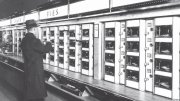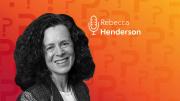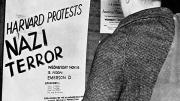In two newspaper op-ed essays, faculty members critique aspects of the federal government's financial-rescue measures and emerging proposals for another economic-stimulus package.
Writing in the New York Times, in an article titled "This Bailout Doesn't Pay Dividends," David S. Scharfstein (Converse professor of finance and banking at Harvard Business School) and Jeremy C. Stein (Safra professor of economics in the Faculty of Arts and Sciences) argue that the $125 billion invested in banks—with a like sum yet to be invested—should come with a prohibition on payment of dividends to holders of the companies' common stock. By making a preferred-stock investment without imposing such a ban, the authors write, Treasury Secretary Henry Paulson "is described as playing the role of the Godfather, making the banks an offer they could not refuse. But in one important respect, he was more Santa Claus than Vito Corleone": given that the government investments are made to shore up the banks' capital, they argue, it makes no sense to let that capital be dissipated in common-stock dividends (to the tune of an estimated $25 billion annually). During the government bailout of Chrysler, they note, such dividend payments were suspended from 1980 to 1983.
Separately, in the Washington Post, Peter Tufano (Coleman professor of financial management and senior associate dean for planning and University affairs at Harvard Business School ) writes "Just Keep Our Money." Rather than stimulate the economy by sending a new round of checks to taxpayers and consumers, he suggests that the government distribute savings bonds, a tactic by which lawmakers "could help quell the recent chaos, raise as much as $250 billion a year, strengthen families and enhance civic engagement," all while promoting saving. The suggestion arises from work done by the Doorways to Dreams Fund, a nonprofit group that Tufano co-founded to promote saving among lower-income citizens; it has experimented with helping willing families capture their income-tax refunds for savings.








